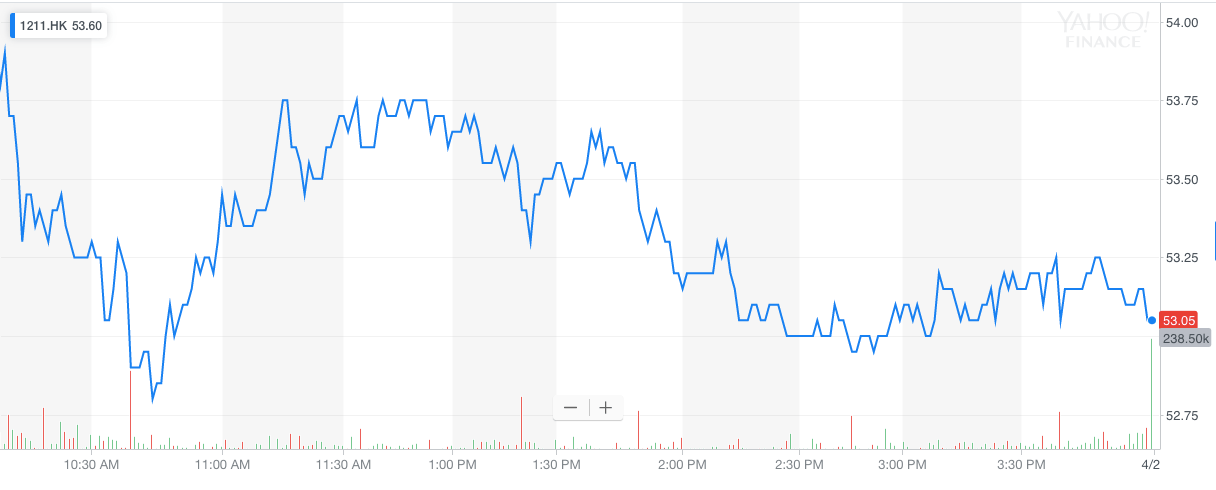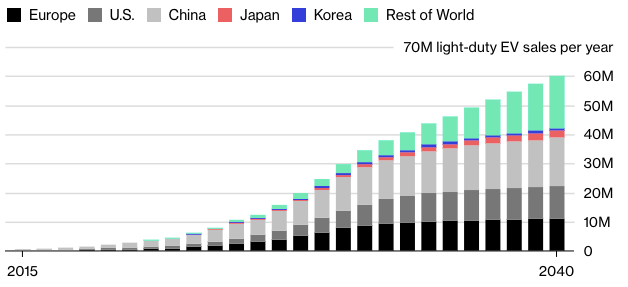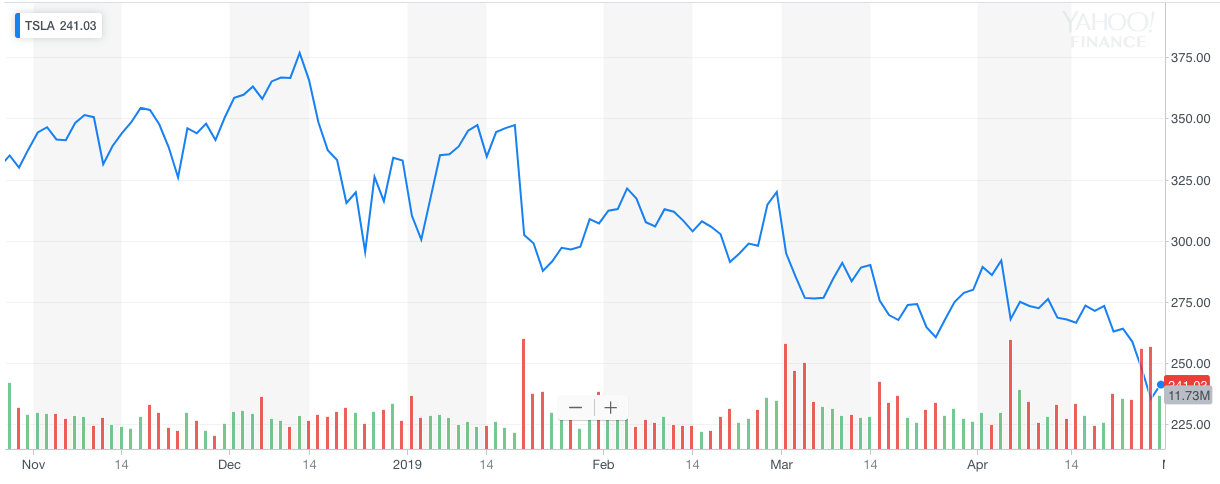[ad_1]
By CCN: On the heels of a rather disappointing Tesla earnings call, Chinese electric car maker BYD Auto reported a stunning 632 percent increase in Q1 net profit. The company, backed by Warren Buffet, saw profits jump from 102.4 million yuan (~$16.2 million at that time) to 749.73 million yuan (~$111.4 million), Reuters reports.
Remarkably, BYD stock seems unaffected by the news.
China Is Falling in Love with Electric Vehicles
We can credit the booming sales figures to the massive (and growing) electric vehicle (EV) market in China. According to China’s Association of Automobile Manufacturers, Chinese citizens will buy at least 1.6 million electric vehicles this year. But that’s just the beginning of it. Bloomberg predicts that, through 2040, China will top the global leaderboard in EV sales. And BYD Auto is poised to take a large chunk of that market.
Bloomberg predicts China will be the worldwide EV leader through 2040. | Source: Bloomberg New Energy Finance
In the past year, BYD Auto has grown its Q1 electric vehicle sales from just shy of 30,000 to over 73,000 – an almost 150 percent gain on the year. BYD electric vehicles now account for more sales than the company’s oil-fueled counterparts.
The company expects these results to continue, stating this in a recent filing:
“New energy vehicles are expected to continue to sell well in the second quarter, and new energy vehicle sales and revenues continue to maintain strong growth.”
BYD Stock Remains Unaffected Despite 632% Profit Jump

The BYD stock price hardly moved after news of the spectacular first quarter. | Source: Yahoo Finance
Although BYD reported mainly positive news, the BYD stock price hasn’t budged. In fact, BYD stock is down almost one percent on the day. Government subsidies may be to blame for the lack of stock response.
BYD reached profitability largely due to government subsidies on both the national and local level. Unfortunately, these subsidies are winding down, and the majority will disappear by 2020. The loss of them could cause a blow to the BYD stock considering the company received over $1 billion in subsidies in 2016.
Beyond declining subsidies, the electric car manufacturer faces stiff Chinese competition. As of July 2018, China has almost 500 different electric vehicle manufacturers. Although demand for EVs is continuing to increase, there’s no way that it will be enough to support the vast number of manufacturers in the market.
Tesla Stock vs. BYD Stock – Apples and Imported Oranges?
With earnings reports occurring just days apart, it’s difficult not to draw contrasts between the two electric vehicle companies. While Tesla lost over $700 million this past quarter, BYD would most likely still be in the green even without its subsidies. Additionally, Tesla continues to have manufacturing issues, falling 13,000 vehicles short of the company’s 63,000 first quarter goal.
As a result, Tesla stock is down about eight percent since Elon Musk‘s April 24 earnings call and has dropped almost 25 percent since the start of the year. In comparison, BYD stock is up over 10 percent on the year.
Some analysts, like Strategy Analytics’ Kevin Li, think it’s unfair to compare the two companies, though.
BYD has a narrow focus on low-level electric vehicles. Taxis and rideshare drivers comprise one-third of the company’s electric vehicle sales. Tesla, on the other hand, produces luxury vehicles in which the cheapest model, the Tesla Model 3, starts at $35,000.
Tesla and BYD may have their differences, but it’s safe to say both companies need to make improvements to see success in the coming years. If Tesla can’t improve its production numbers or if BYD fails to fill its subsidy vacuum, one of their hundreds of competitors will quickly take their spot.
[ad_2]
Source link


